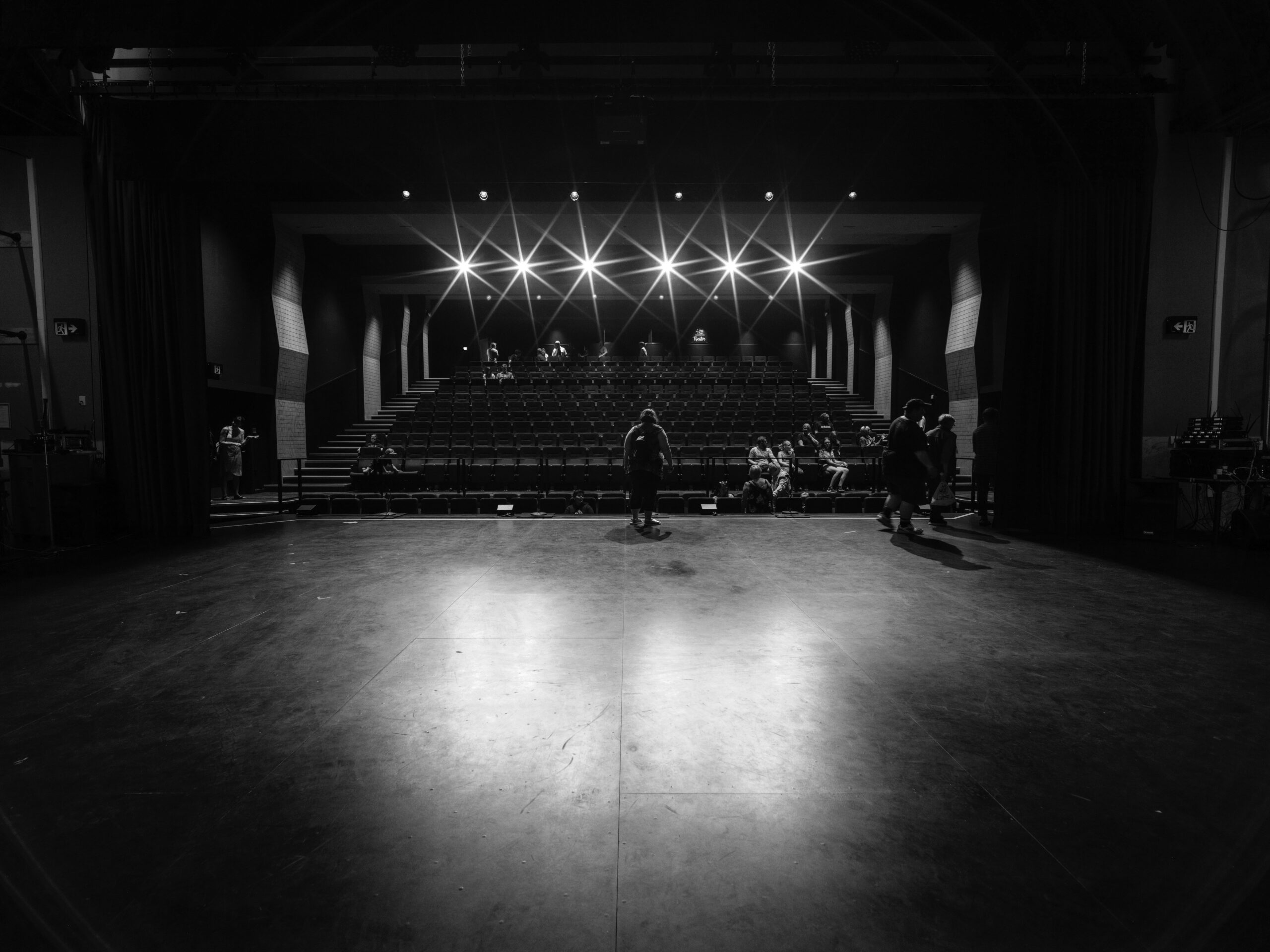
On March 4, 2020, ViacomCBS announced its intention to sell its book-publishing subsidiary, Simon & Schuster.1 This announcement came less than a year after the merger between Viacom and CBS.2 Since the 2019 merger, ViacomCBS decided to focus on television and video and began selling its smaller companies that do not have a “significant connection for [its] broader business.”3 Prior to the announcement to buy Simon & Schuster, ViacomCBS had received “unsolicited inbound calls” regarding the sale of the book publishing company.4
Rumors swirled for months over who would buy Simon & Schuster.5 On November 25, 2020, a deal between Penguin Random House’s parent company, Bertelsmann, and ViacomCBS was announced.6 This prospect of the merger potentially creating a “megapublisher” shook the publishing world to its core.7 For context, Penguin Random House is the world’s largest book publisher in the world, and Simon & Schuster is the fourth largest U.S. book publisher.8 The news of the potential merger between these two companies caught the attention of the United States Department of Justice (“DOJ”). If the two companies were to merge, the “Big Five” of book publishers would shrink to the “Big Four.”9
On November 2, 2021, the Antitrust Division of the DOJ filed a civil suit against Bertelsmann, Penguin Random House, ViacomCBS, and Simon & Schuster in the United States District Court for the District of Columbia.10 The complaint alleged a violation of The Clayton Antitrust Act (“The Clayton Act”).11 The DOJ alleged that the completion of the transaction might: eliminate competition between Penguin Random House and Simon & Schuster, facilitate coordination between the large publishers, decrease author income, reduce the quantity and variety of published books, and reduce quality, service, choice, and innovation.12
The DOJ requested, among other things, that the parties be permanently enjoined from executing the purchase deal.13 The complaint asserted that if Penguin Random House and Simon & Schuster were to merge, they would control over two-thirds of the book publishing market.14 This merger would create a monopsony, a “single (or dominant) buyer dealing with multiple sellers.”15 The Supreme Court has previously emphasized that a monopsony is a “mirror image” of a monopoly, and that there is a close “theoretical connection between” the two.16
Monopsonies are sometimes characterized negatively because of their effects on consumer welfare.17 However, in its complaint, the DOJ emphasized the effects that the alleged monopsony would have on sellers, and in turn, labor wages.18 The complaint asserts that the consolidation of the book publishing buyer market may result in less competition and lower bidding rates on rights to books. Penguin Random House and Simon & Schuster, if merged, will no longer engage in a bidding war against each other to attain the rights to the next potential best-seller. Penguin Random House will bid against other book publishers that have only a fraction of its money, services, and resources.19 In such a situation, the highest bidder essentially has the power to set the maximum bid at whatever price it pleases. Because the acquisition of Simon & Schuster comes at a high price, $2.175 billion, Penguin Random House could spread the cost of the purchase by drastically lowering its bidding prices.20 The remaining “Big” publishers may not be able to match even the lower bidding prices Penguin Random House offers. A Penguin Random House executive said, “I would not want to be a big author at Simon & Schuster now . . .” indicating that such a result could indeed be the new reality for authors.21 The DOJ’s complaint explains that “[b]y reducing author pay, this merger would make it harder for authors to earn a living by writing books, which would, in turn, lead to a reduction in the quantity and variety of books published.”22 The complaint paints a dark picture of the future of book publishing.
The antitrust trial commenced on August 1, 2021, in the United States District Court for the District of Columbia.23 The bench trial was heard by Judge Florence Y. Pan,24 a 2021 Biden appointee.25 The trial gained a lot of media attention and even featured testimony from author Stephen King, a witness for the government.26 It spanned three weeks, and the case is expected to be decided within the next couple of months.27
Recently, courts have heard antitrust cases more frequently, both government and private claims.28 However, not many mergers that have been challenged as potential monopsonies have been fully litigated.29 The most recent monopsony merger cases concerned the healthcare and agriculture industries.30 The DOJ challenged the proposed merger of Anthem and Cigna in 2016; however, only the dissenting judge addressed the monopsony claim.31 In 2018, the United States District Court for the District of Columbia found that the government did not meet its burden in proving that the merger between AT&T and Time Warner, Inc. would substantially lessen competition.32 Since these decisions, President Biden has come into office and appointed new federal justices. It will be interesting to see if this will cause a shift in antitrust decisions and enforcement.
The involved parties are not alone in their nail-biting wait for the outcome of the DOJ’s suit to prevent the Penguin Random House-Simon & Schuster merger. Many businesses await this decision, as the outcome of this antitrust trial will set the tone for mergers going forward. While the decision is still pending, companies may need to ensure that the merger-specific efficiencies33 they propose for their transaction outweigh the harm to competition that the merger may inflict. These proposed efficiencies will likely need to satisfy the DOJ in a way that the proposed efficiencies by Penguin Random House did not.34 The DOJ’s Horizontal Merger Guidelines are the tool employed to analyze such cases35 and clarify that mergers between buyers are subject to suit.36 A ruling that permanently enjoins the transaction, if upheld, will likely be used as precedent to halt future large-scale mergers. If Penguin Random House and Simon & Schuster are ultimately allowed to complete the transaction, the DOJ’s predictions of coordination between publishers, reduced wages for authors, and lower book quantity, quality, and variety will either be proven as valid or as an exaggeration of consequences.
Olivia Nacionales is a Second Year Law Student at the Benjamin N. Cardozo School of Law and a Staff Editor at the Cardozo Arts & Entertainment Law Journal. Olivia is interested in civil rights, data privacy, and antitrust.
- Edmund Lee & Alexandra Alter, Simon & Schuster is Up for Sale, N.Y. Times (Nov. 17, 2020), https://www.nytimes.com/2020/03/04/business/media/simon-schuster-for-sale-viacom-cbs.html [https://perma.cc/4M24-QGSH].
- Elaine Low, CBS-Viacom Merger: Read the Internal Memos from Top Execs Bob Bakish and Joe Ianniello, Variety (Aug. 13, 2019), https://variety.com/2019/tv/news/cbs-viacom-merger-internal-memos-from-viacoms-bob-bakish-cbs-joe-ianniello-1203301181/ [https://perma.cc/5P4D-VR5Y].
- Brian Steinberg, Bob Bakish: ViacomCBS to Sell Publishing Unit Simon & Schuster, Variety (Mar. 4, 2020), https://variety.com/2020/biz/news/viacomcbs-simon-and-schuster-sale-1203523803/ [https://perma.cc/CCZ6-HB5C].
- Id.
- Keith J. Kelly, Suitors Are Lining Up to Buy Simon & Schuster Amid Market Troubles, N.Y. Post (Mar. 12, 2020). https://nypost.com/2020/03/12/suitors-are-lining-up-to-buy-simon-schuster-amid-market-troubles/?utm_source=twitter_sitebuttons&utm_medium=site%20buttons&utm_campaign=site%20buttons [https://perma.cc/P9EG-23GH]; Alex Barker, James Fontanella-Khan & Anna Nicolaou, Betelsmann Leads the Race to Acquire Simon & Schuster, The Fin. Times (Nov. 24, 2020) https://www.ft.com/content/f72d5c5b-5f1d-4a99-9748-290dd2653e74 [https://perma.cc/ZN4A-T2QF].
- Alexandra Alter & Edmund Lee, Penguin Random House to Buy Simon & Schuster, N.Y. Times (Nov. 2, 2021), https://www.nytimes.com/2020/11/25/books/simon-schuster-penguin-random-house.html [https://perma.cc/9CXX-PDW5].
- Id.
- Complaint at 2, United States v. Bertelsmann SE & CO. KGaA, No. 1:21-cv-02886 (D.D.C. Nov. 2, 2021).
- Id. at 21.
- Id. at 1, 26.
- Id. at 25. The Clayton Act was passed in 1914 to “curb the power of trusts and monopolies and maintain market competition” in an era of monopolies and predatory business practices. It “supplemented and strengthened” the Sherman Act of 1890. The Clayton Antitrust Act, History, Art, & Archives, United States House of Representatives, https://history.house.gov/HistoricalHighlight/Detail/15032424979 [https://perma.cc/E7NK-7WNG].
- Complaint, Bertelsmann, at 25.
- Id. at 25.
- Id. at 4.
- Debbie Feinstein & Albert Teng, BUYER POWER: IS MONOPSONY THE NEW MONOPOLY?, 33 Antitrust, no. 2, at 12.
- Weyerhaeuser Co. v. Ross-Simmons Hardwood Lumber Co., Inc., 549 U.S. 312, 321, 325 (2007) (citations omitted).
- Feinstein, supra note 13, at 12.
- Complaint, Bertelsmann, at 6.
- Id. at 5 (showing that Penguin Random House alone paid almost double the amount of money than its next competitor in advances in 2020).
- Id. at 9.
- Id. at 5.
- Id. at 6.
- David McCabe, Justice Dept. and Penguin Random House’s Sparring Over Merger Has Begun, N.Y. Times: Daily Business Briefing (Aug. 1, 2022), https://www.nytimes.com/2022/08/01/business/penguin-random-house-antitrust.html [https://perma.cc/739B-CNSS].
- Constance Grady, Book Publishers Just Spent 3 Weeks in Court Arguing They Have No Idea What They’re Doing, Vox (Aug. 25, 2022), https://www.vox.com/culture/23316541/publishing-antitrust-lawsuit-merger-department-justice-penguin-random-house-simon-schuster [https://perma.cc/P6UV-2HZE].
- Florence Pan, Ballotpedia, https://ballotpedia.org/Florence_Pan [https://perma.cc/S4AB-UBSC].
- Grady, supra note 22.
- Id.
- Feinstein, supra note 13, at 15.
- Id. at 14.
- Id. at 15.
- United States v. Anthem, Inc., 855 F.3d 345, 377 (D.C. Cir. 2017).
- United States v. AT & T Inc., 310 F.Supp.3d 161, 194 (D.D.C. 2018).
- U.S. Dep’t of Just., Just. Manual § 7-5.420B (2010) (“[A] primary benefit of mergers to the economy is their potential to generate significant efficiencies and thus enhance the merged firm’s ability and incentive to compete, which may result in lower prices, improved quality, enhanced service, or new products. . . . Efficiencies also may lead to new or improved products, even if they do not immediately and directly affect price. . . . Even when efficiencies generated through a merger enhance a firm’s ability to compete, however, a merger may have other effects that may lessen competition and make the merger anticompetitive. The Agencies credit only those efficiencies likely to be accomplished with the proposed merger and unlikely to be accomplished in the absence of either the proposed merger or another means having comparable anticompetitive effects. These are termed merger-specific efficiencies.”).
- Complaint at 23, United States v. Bertelsmann SE & CO. KGaA, No. 1:21-cv-02886 (D.D.C. Nov. 2, 2021).
- Press Release, Department of Justice, Office of Public Affairs, Justice Department Sues to Block Penguin Random House’s Acquisition of Rival Publisher Simon & Schuster (Nov. 2, 2021), https://www.justice.gov/opa/pr/justice-department-sues-block-penguin-random-house-s-acquisition-rival-publisher-simon [https://perma.cc/Q9RL-NT73].
- Feinstein, supra note 13, at 15; U.S. Dep’t of Just., Just. Manual § 7-5.420B (2010) (“Enhancement of market power by buyers, sometimes called “monopsony power,” has adverse effects comparable to enhancement of market power by sellers. The Agencies employ an analogous framework to analyze mergers between rival purchasers that may enhance their market power as buyers.”).



